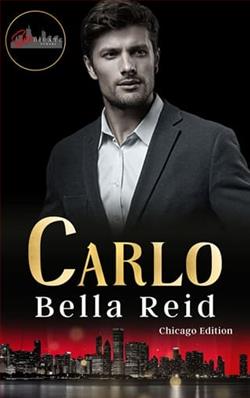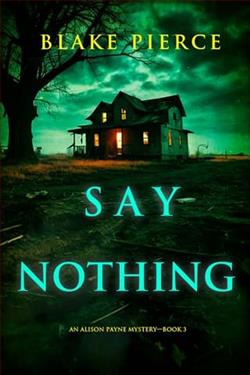Page 18 of Dodge
“You know a lot about him.”
A nod.
Braddock asked, “Why didn’t you contact us?”
“I work best alone.” Which was true but left out more than it told. “Your deputy, he have a family?”
“A wife. And they’re peas in a pod. Do everything together. Fish, hunt, cycle ... that’s theproperkind of cycling. Harleys. Jessica’s with him now and woe to any nurse that tries to pry her away.” One hand left the wheel briefly to smooth the mustache. “What was the point of it? Faking he was a marshal?”
“I had to guess, he wanted a cop as a human shield.”
“What?”
“Offenbach’d find me. He and the deputy’d move in and then he’d step behind Tony, make him a shield. He knows I’d hesitate. That’s all you need for advantage. A few seconds. He’d take me out, and then him.”
“Dealt with some pretty downward individuals in my day but never anybody like him.”
Braddock glanced—for the third time—at her scar. It had happened when she was at a match in Trenton. Boxing gloves don’t cut flesh like that. The scar was from after the fight was over, outside.
The sheriff’s fingers flipped up and down atop the wheel. She wondered if he actually did play a keyboard.
“I’ll need you to stay around. If we find Offenbach you’ll be a material witness.”
“You won’t find him. He’s gone now.”
“You know that for a fact?”
“He tried for me and he blew it, and now you and WSP’ll be all over the county. He’ll fall back—go underground. Chicago, or one of his places in Florida or offshore. He’ll set up another trap for me someplace else.”
“We’ll take that under advisement. I assume the Western Valley Lodge isn’t your real accommodations. Where’re you staying, Agent Marlowe?”
“We’ve got each other’s phone numbers.”
“Ah. Probably best to keep information like that close to your vest.” A shake of his head. “Jugs of water in the dresser. What wasthatall about?”
She gave him a nod. “Night, Sheriff.”
As she walked to her own car, she kept an eye on the nearby woods, which would be a good place for a shooter to set up shop.
Because she knew as well as she knew it was a cool spring evening scented with jasmine that Paul Offenbach had gone nowhere.
He was still in or around Upper Falls, Wisconsin, and here he would remain until one of two things happened. He killed her, or she killed him.
He sat on the porch of a rambling house, a century old, in the low hills in unincorporated Harbinger County.
A twenty-five-year-old Macallan Scotch beside him, Paul Offenbach was looking over the view, rolling and gentle, well on its way to April budding. In his sure hands, a penknife made the circuit of the inside of his pipe. While the smoking implement certainly had to be cleaned with some frequency, scraping wasn’t necessary.
He simply enjoyed the sound. It was like blade on bone.
Offenbach had come to the house frequently when young and the four-thousand-square-foot structure held fond memories for him. Also, nice, it was largely untraceable. So, with no living relatives in the Midwest any longer, Offenbach had used it as a safe house and for storage and as a staging area for jobs in northern Illinois and southern Wisconsin. Here he had several million untraceable dollars and two dozen weapons. No drugs. After the Old Bennett Road robbery in Vandalia County, Illinois, he’d sold the entire stash immediately. Narcotics were far too easy to—literally—sniff out.
The scraping put him in mind of the deputy, Cynthia Hooper, he’d learned her name was, who’d stumbled on the Sprinter he and his crew were breaking into on Old Bennett Road—to her misfortune, and his delight.
Scraping, the sound of the razor knife on bone ...
Offenbach used to wonder—with concern—why he got such pleasure from pain: eating chocolate pleasure, drinking single-malt pleasure, orgasmic pleasure. While someone else mightenjoy hearing the moans and whispers of their lover during the throes of coupling, he slipped into an ecstatic reverie at the sound of screams, the smell of blood, the gasping begs to stop ...
But Paul Offenbach had realized long ago that his love of hurt was not a fault, not a crime. How could it be? He was simply being true to his nature. A shark wasn’t bad when it dined on a dangling limb. According to these rules of the world, irrefutable, Offenbach was in the right when he created pain.















